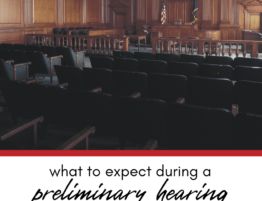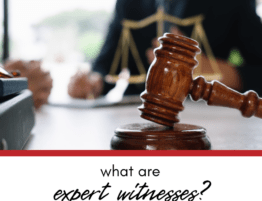
When you’re accused of sexual assault, the situation is undoubtedly serious and sensitive. The steps you take immediately after such an accusation can significantly impact the outcome of your case. One of the most critical actions is to communicate openly and honestly with your lawyer. Providing your legal counsel with comprehensive information is key to building a strong defense.
What Should You Tell Your Lawyer When You’re Accused of Sexual Assault?
If you find yourself facing accusations of sexual assault, it’s imperative to know what information to share with your lawyer. Full disclosure can equip your lawyer with the necessary tools to defend you effectively.
The Incident Details
When discussing the incident, it’s crucial to provide a clear and detailed account. Start from the beginning, explaining where you were, what you were doing, and who was present. Describe the events leading up to the incident, the incident itself, and what happened immediately afterward. Be specific about times, locations, and interactions. This information forms the backbone of your defense, as it allows your lawyer to compare your recollection with the accuser’s allegations and any other available evidence.
Communication Evidence
Any form of communication between you and the accuser can shed light on your relationship and the events in question. Hand over all text messages, emails, direct messages, and any other written or recorded communications you have. This may include seemingly innocuous conversations or those that are intimate in nature. These communications can provide context that may support your version of events or challenge the accuser’s credibility.
Witnesses and Alibis
Identify anyone who may have been around before, during, or after the alleged incident. Witnesses can corroborate your account and provide an independent perspective on the interaction between you and the accuser. If you have an alibi, provide your lawyer with details about where you were and who can confirm your presence. Alibis can be supported by receipts, photographs, electronic location data, and witness statements.
Past Interactions
Your history with the accuser can be relevant, especially if there is a pattern of behavior or previous disputes that may provide motive for the accusation. Share details of your relationship, including any previous consensual encounters, disagreements, or relevant incidents. This information can help your lawyer understand the dynamics between you and the accuser and develop a defense strategy that takes into account the full scope of your interactions.
Any Prior Legal Issues
Disclose any legal issues you’ve had in the past, particularly those involving allegations of a similar nature. While such information is sensitive and may seem damaging, it’s better for your lawyer to know about it upfront than to be surprised by it later in the process. Prior legal issues can influence the defense approach, and your lawyer can take steps to mitigate their impact on your current case.
FAQ About Sexual Assault Accusations
Check out these commonly asked questions about sexual assault accusations. If you don’t see the answers here, please call our office and we’ll provide the information you need.
What Constitutes Sexual Assault in Illinois?
In Illinois, sexual assault is legally defined as any sexual act performed without the consent of the other person. Consent is a clear and unambiguous agreement, expressed outwardly through affirmative words or actions. It is important to understand that consent cannot be given if a person is unable to respond or is unconscious, incapacitated due to drugs or alcohol, or is coerced through threats or intimidation. The law is very specific in that the absence of a clear “no” does not mean “yes.”
How Can Communication Evidence Affect My Case?
Communication evidence can significantly influence the direction and strength of your defense. Text messages, emails, and other forms of communication with the accuser can reveal the nature of your relationship and the events leading up to the incident. For instance, if messages show that there was a plan to meet with a clear understanding of what would occur, this could suggest consent. Conversely, if messages from the accuser express discomfort or a lack of consent, they could be damaging to your defense. It’s essential to provide all communication evidence to your lawyer so they can determine its relevance and impact on your case.
What Should I Do If There Are No Witnesses?
The absence of witnesses in a sexual assault case can make it more challenging to prove your innocence, but it is not insurmountable. Your defense can focus on the credibility of the accuser’s story, the lack of physical evidence, and any circumstantial evidence that supports your narrative. For example, if you can show that you were in a different location at the time of the alleged incident through digital evidence like GPS data, credit card transactions, or surveillance footage, this can be used to support your alibi.
Can Past Sexual History Be Used Against Me?
Generally, the legal system protects individuals from having their past sexual history used as evidence in court to avoid prejudicial judgments. However, there are exceptions where this history may be relevant to the case at hand. For example, if there is a past relationship between you and the accuser that is directly related to the current allegations, it may be considered. It’s important to disclose any such history to your lawyer so they can prepare for its potential introduction in court and strategize accordingly.
How Important Is It to Have a Lawyer in a Sexual Assault Case?
Having a lawyer when you are accused of sexual assault is of paramount importance. A lawyer with experience in sexual assault cases can provide the necessary legal expertise to navigate the complex criminal justice system. They will work to protect your rights, challenge the prosecution’s evidence, and present your side of the story in the most compelling way possible. A lawyer can also manage all interactions with law enforcement and the legal system, ensuring that you do not inadvertently harm your case by speaking without proper legal advice.
Do You Need to Talk to an Attorney?
If you’ve been accused of a crime, we may be able to help you – and don’t worry: It’s completely confidential. Call us at 847-920-4540 or fill out the form below to schedule your free, private consultation with an experienced and skilled Chicago criminal defense attorney now.
Contact Us
"*" indicates required fields









